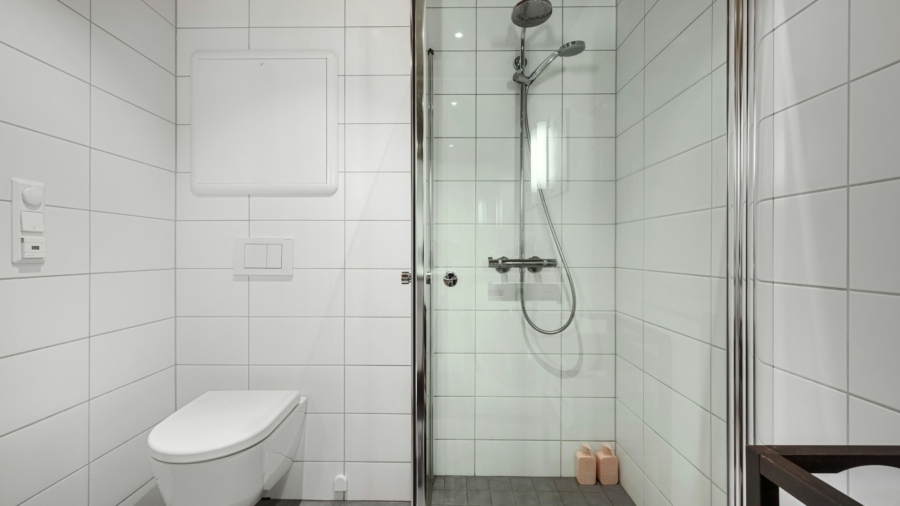Water heaters work tirelessly behind the scenes, delivering hot water for showers, dishwashing, and countless daily tasks. Yet many homeowners overlook this essential appliance until something goes wrong. Regular maintenance and timely repairs can extend your water heater’s lifespan, improve efficiency, and prevent costly emergencies.
Most water heaters last 8-12 years with proper care, but neglected units often fail prematurely. Understanding how to maintain your system—and when to call professionals—protects your investment and ensures reliable hot water for years to come.
Understanding Your Water Heater System
Tank vs. Tankless Systems
Traditional tank water heaters store and continuously heat 30-80 gallons of water. These systems are affordable to install but consume more energy to maintain water temperature. Tankless units heat water on demand, offering energy savings but requiring different maintenance approaches.
Key Components That Need Attention
Every water heater contains critical components that require regular inspection. The heating elements or gas burners provide heat, while the thermostat controls temperature. The pressure relief valve prevents dangerous pressure buildup, and the anode rod protects the tank from corrosion.
How Age Affects Performance
Water heaters become less efficient over time. Sediment buildup reduces heating capacity, while mineral deposits create hot spots that damage tank walls. Components wear out, seals deteriorate, and energy consumption increases. Regular plumbing maintenance addresses these issues before they become serious problems.
Warning Signs Your Water Heater Needs Attention
Temperature and Pressure Issues
Inconsistent water temperature often indicates failing heating elements or thermostat problems. If your hot water runs out quickly, sediment buildup might be reducing tank capacity. Low water pressure from hot water taps can signal pipe blockages or internal component failures.
Unusual Sounds and Smells
Popping, crackling, or rumbling sounds typically indicate sediment accumulation at the tank bottom. These deposits create steam pockets that make noise when heated. Rotten egg odors suggest bacterial growth in the tank, while metallic tastes indicate corrosion.
Visual Inspection Red Flags
Rust-colored water points to internal corrosion, while puddles around the unit suggest leaks. Visible rust on the tank exterior or connections indicates advancing deterioration. Mineral deposits around fittings show where slow leaks have occurred.
Essential Maintenance Tasks Every Homeowner Should Know
Monthly Safety Checks
Test the pressure relief valve monthly by lifting the lever slightly. Water should flow freely and stop when released. Check the area around your water heater for moisture, unusual odors, or corrosion. Verify that the venting system remains clear and properly connected.
Semi-Annual Maintenance
Every six months, inspect the anode rod if accessible. This sacrificial component protects your tank from corrosion and should be replaced when significantly deteriorated. Check all connections for tightness and clean around the unit to ensure proper ventilation.
Annual Professional Inspections
Professional plumbers can perform comprehensive inspections that identify potential issues before they cause hot water issues. They’ll check gas connections, electrical components, and internal tank conditions that homeowners cannot safely access.
DIY Maintenance vs. Professional Services
Safe DIY Tasks
Homeowners can safely perform basic maintenance like draining sediment, testing pressure valves, and checking for leaks. Adjusting temperature settings within manufacturer recommendations is also appropriate for most people.
When to Call Shaw Plumbing Services
Complex repairs require professional expertise. Gas line work, electrical connections, and internal component replacement demand proper training and tools. Professional services ensure code compliance and warranty protection while preventing dangerous situations.
Cost Considerations
Regular maintenance costs far less than emergency repairs or premature replacement. Professional maintenance visits typically cost $100-200 annually, while major repairs can exceed $1,000. Emergency service calls often carry premium rates that preventive care avoids.
Common Water Heater Problems and Solutions
Heating Element Failures
Electric water heaters rely on heating elements that eventually burn out. Signs include no hot water, insufficient heating, or tripped circuit breakers. Replacement requires electrical work that professionals should handle safely.
Thermostat Malfunctions
Faulty thermostats cause temperature fluctuations, overheating, or complete heating failure. These components regulate when heating elements activate and require precise calibration for optimal performance.
Sediment Buildup Solutions
Mineral deposits accumulate naturally in all water heaters. Regular flushing removes sediment before it hardens and damages components. Professional cleaning techniques ensure complete removal without damaging internal parts.
Pressure Relief Valve Issues
A malfunctioning pressure relief valve creates serious safety hazards. If the valve constantly drips or won’t activate during testing, immediate replacement is necessary. This critical safety component prevents dangerous pressure buildup.
Extending Your Water Heater’s Lifespan
Water Quality Impact
Hard water accelerates mineral buildup and reduces efficiency. Installing a water softener system protects your water heater and other appliances. Regular testing helps determine if water treatment would benefit your system.
Temperature Optimization
Setting water temperature between 120-140°F balances comfort with efficiency. Higher temperatures waste energy and accelerate component wear, while lower settings may not provide adequate hot water or kill bacteria.
Insulation and Efficiency Improvements
Adding insulation blankets to older units reduces heat loss and energy consumption. Insulating hot water pipes prevents heat loss during distribution. These improvements often pay for themselves through reduced energy bills.
Replacement Planning
Even well-maintained water heaters eventually need replacement. Planning allows for proper research, better pricing, and installation scheduling. Emergency replacements often cost more and limit equipment options.
Professional Maintenance Creates Long-Term Value
Regular water heater maintenance protects your investment and ensures reliable performance. Professional services identify problems early, extend equipment life, and maintain efficiency. Whether you need routine maintenance or emergency repairs, qualified technicians provide the expertise necessary for safe, effective solutions.
Don’t wait for cold showers or flooded basements to address water heater needs. Schedule regular maintenance with Shaw Plumbing Services to keep your system running efficiently and avoid costly surprises. Your future self will appreciate the consistent hot water and lower utility bills that proper maintenance provides.

